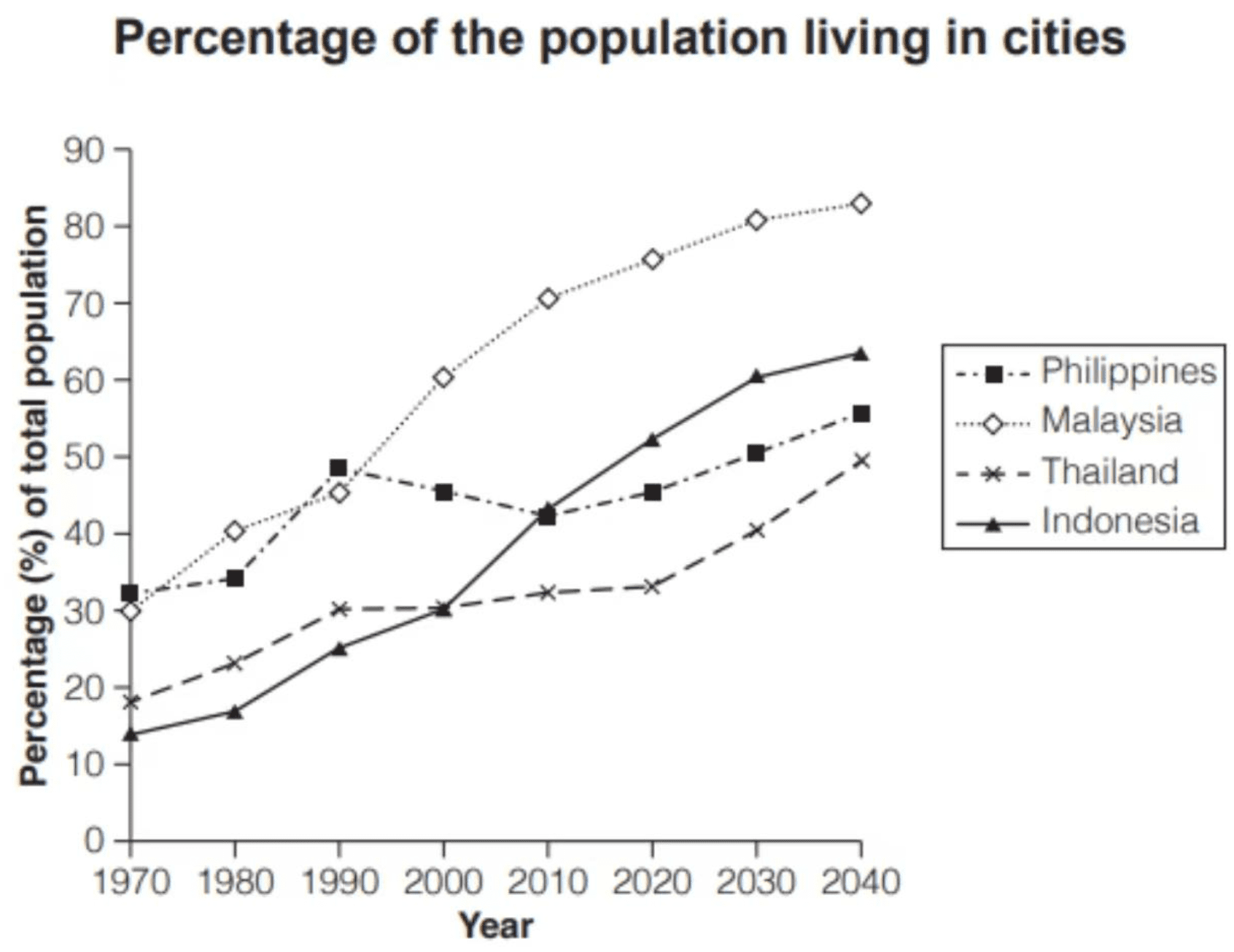The graph below gives information about the percentage of the population in four Asian countries living in cities from 1970 to 2020, with predictions for 2030 and 2040.
Summarise the information by selecting and reporting the main features, and make comparisons where relevant.
Write at least 150 words.
---
The chart illustrates the percentage of population in four Asain nations living in the urban area from 1970 to 2020, and the prediction for the next two decades to 2040.
Overall, it is noticeable that the percentage of the population in these four countries all increased before 2020, and they are projected to continue to accelerate in 2030 and 2040. Compared to the percentage variation in Malaysia and Indonesia, which both had a dramatic rise before 2020, the percentage in Philippines and Thailand had a slow increase over the span.
In more detail, the percentage of the population who lived in the urban area in Malaysia went up by 30 percent to approximately 80 percent in 2040. In Indonesia, although it had almost the same amount of increment as Malaysia, it stood at around 13 percent and be assumed to reach 60 percent in 2040.
If we take a look at the other two countries, the percentage of the population living in city in Philippines had an large increase between 1980 and 1990, from 32 percent to 50 percent, then had a slight decrease, fell by nearly 10 percent for the next two decades. In Thailand, the percentage rose from around 19 percent and had a steady increase over the span to 45 percent in 2040.
Summarise the information by selecting and reporting the main features, and make comparisons where relevant.
Write at least 150 words.
---
The chart illustrates the percentage of population in four Asain nations living in the urban area from 1970 to 2020, and the prediction for the next two decades to 2040.
Overall, it is noticeable that the percentage of the population in these four countries all increased before 2020, and they are projected to continue to accelerate in 2030 and 2040. Compared to the percentage variation in Malaysia and Indonesia, which both had a dramatic rise before 2020, the percentage in Philippines and Thailand had a slow increase over the span.
In more detail, the percentage of the population who lived in the urban area in Malaysia went up by 30 percent to approximately 80 percent in 2040. In Indonesia, although it had almost the same amount of increment as Malaysia, it stood at around 13 percent and be assumed to reach 60 percent in 2040.
If we take a look at the other two countries, the percentage of the population living in city in Philippines had an large increase between 1980 and 1990, from 32 percent to 50 percent, then had a slight decrease, fell by nearly 10 percent for the next two decades. In Thailand, the percentage rose from around 19 percent and had a steady increase over the span to 45 percent in 2040.

2.png
